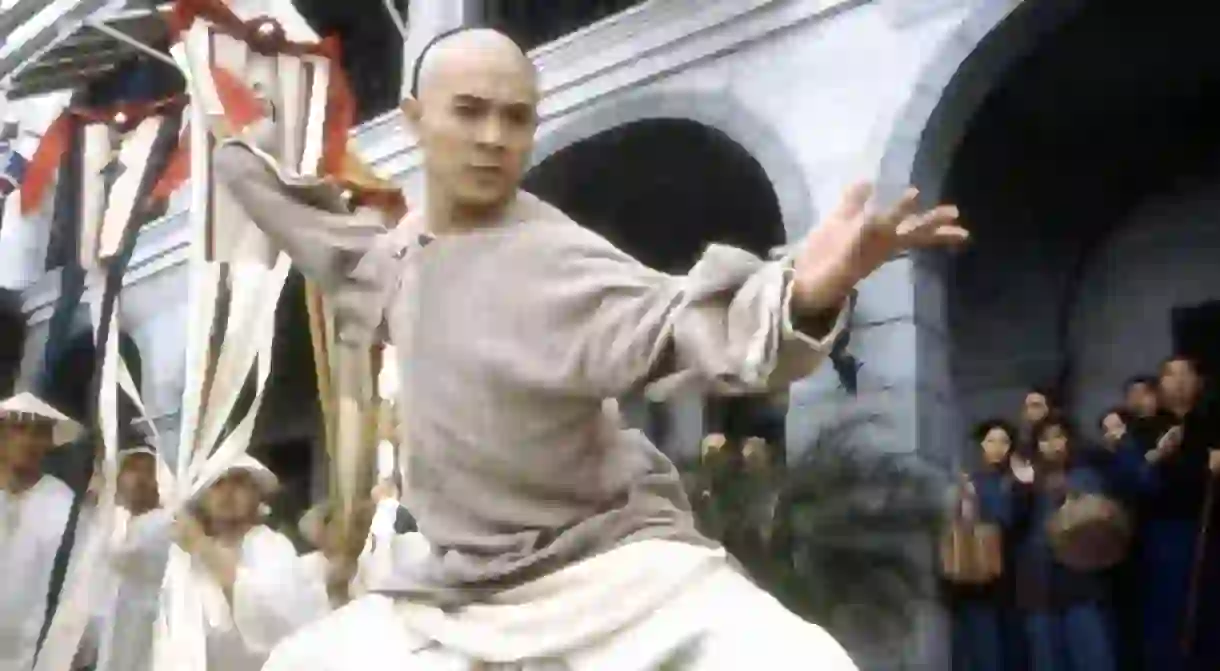7 Films Every Young Chinese Adult Grew up Watching

Thanks to economic reform that began taking place in China in the 1980s, films started to become more accessible for the Chinese generation born in the 1980s and ’90s. From the Chinese films that were screened during school lessons and the ones we watched at the cinema to the imported Hong Kong and Western films we watched on the TV at home, these are the seven films that almost every young Chinese adult grew up watching.
地道战 Tunnel War (1965)
Though Tunnel War was released in the 1960s, many Chinese children born long after that watched the film as part of the country’s patriotic national curriculum. The movie tells the story of a small town defending itself from Japanese invaders using a network of tunnels during the Second Sino-Japanese War (1937—1945). Tunnel War is probably the most famous film set during the war, and displays he bravery and determination of the Chinese people.
背起爸爸上学 Going to School with Father on My Back (1998)
Chinese people born in the 1980s and 1990s may have all had to watch this at either primary or middle school. It is based on the true story of a young boy in the countryside, who carried his paralyzed father to school every day so that he could study and take care of his dad at the same time. This heart-warming movie’s overriding message is that we often take things for granted and must cherish what we have.
大话西游之月光宝盒 A Chinese Odyssey Part One: Pandora’s Box (1995)
This fantasy comedy, which is loosely based on the classic Chinese novel Journey to the West, was a phenomenal success in the mainland, despite being a Hong Kong film. Unlike the original novel in which the Monkey King treats the White Bone Demon as an enemy, the movie sees him fall in love with her and he even endeavours to save her life. A lot of the original characters were deconstructed, with the Tang dynasty monk transformed from a prudish, ascetic character to a funny chatterbox. It was one of the first comedies a mainland Chinese audience had seen, and they instantly fell in love with the mo lei tau humor distinctive of Hong Kong films. Stephen Chow, the movie’s leading actor, is to date regarded by many people as the king of comedy in China.
疯狂的兔子 Crazy Rabbit (1997)
Crazy Rabbit is probably the first sci-fi film a Chinese person watched. The movie tells the tale of a young boy who is kidnapped by aliens. The aliens brainwash the boy and send him back to Earth to encourage Chinese children to play a video game—whoever cries out “Amazing Rabbit” while playing the game turns crazy. Under the help of a scientist, a policeman, and his friend, the young boy returns to normal and the aliens’ plot to conquer the Earth is foiled. The film scared many children at the time and continues to haunt them to this day. Many critics believe the film, which is made by Fifth Generation director Cui Xiaoqin, is an allegory of the Chinese people’s suffering during the Cultural Revolution in the 1960s and ’70s.
宝莲灯 Lotus Lantern (1999)
This animated feature film is made by the legendary Shanghai Animation Film Studio, which created arguably the most influential Chinese animated film ever made, 1964’s Uproar in Heaven. But if Uproar in Heaven is the childhood film of the 1960s generation, Lotus Lantern is the animated film closest to the hearts of those born in 1980s and ’90s. Lotus Lantern is based on the traditional Chinese folklore about a boy named Chenxiang, who embarks on an adventure to rescue his mother, a goddess called Sanshengmu, from a prison she has been locked in for marrying his human father. The movie is renowned for its beautifully drawn frames and its classic score.
三毛从军记 San Mao Joins the Army (1992)
San Mao Joins the Army is adapted from the famous satirical comic strip series created by Zhang Leping in 1946. The protagonist is San Mao, a vagrant boy who had to lead a wandering life because of fierce fighting during the Second Sino-Japanese War. The young protagonist with only three tufts of hair on his head (“San Mao” means “three tufts of hair” in Chinese) strikes a deep chord with the Chinese people, generation after generation. San Mao’s courage in the face of great adversity serves as a harsh reminder of the callousness of war, while encouraging people to work together to make the world a better place.
黄飞鸿 Once Upon a Time in China (1991)
This patriotic kung fu film directed by Hong Kong film-maker Tsui Hark and starring Jet Li was probably most Chinese children’s introduction to the martial arts genre. The film is based on the story of Cantonese martial artist, physician, and folk hero Wong Fei-hung. The heroine, Thirteenth Aunt (Rosamund Kwan), is regarded as one of the most classic characters in Hong Kong movie history. The film’s theme song, “A Man of Determination”,is a favourite among Chinese.
https://www.youtube.com/watch?v=uMgUiYwHZ4E













